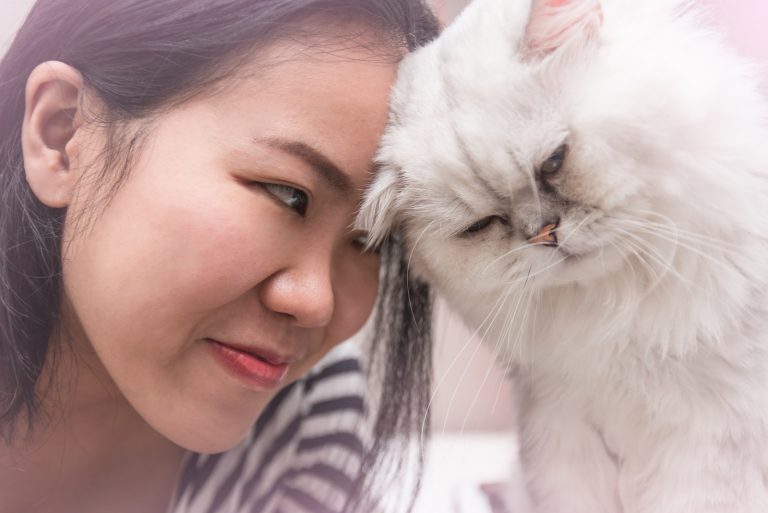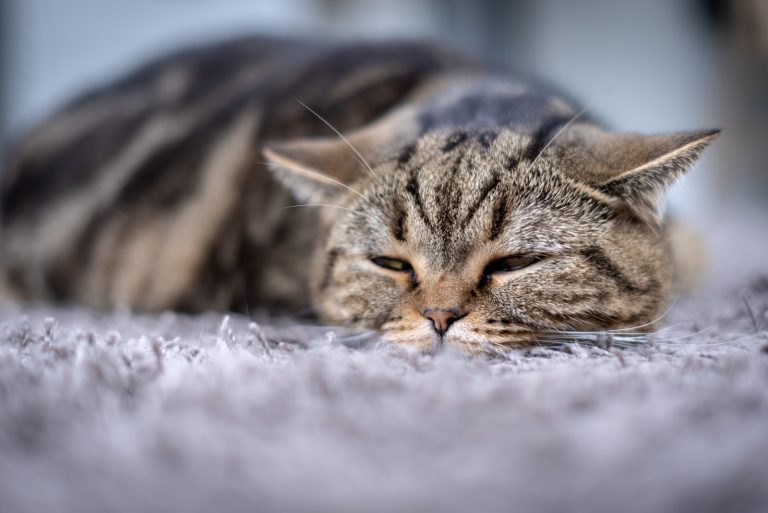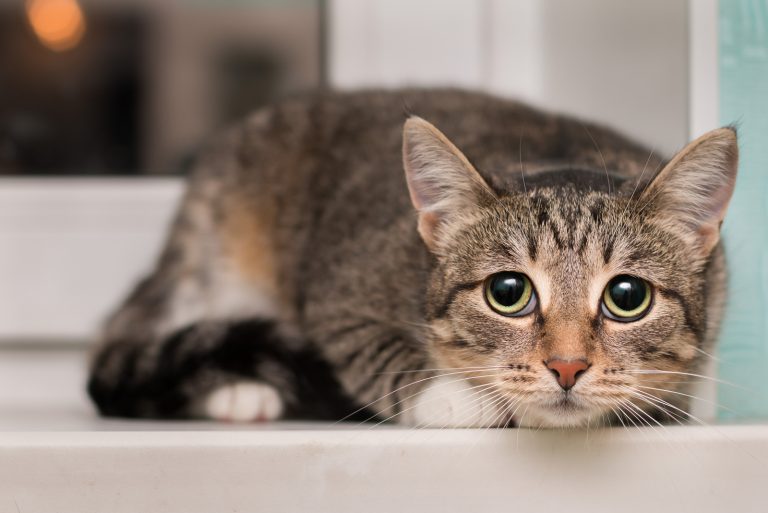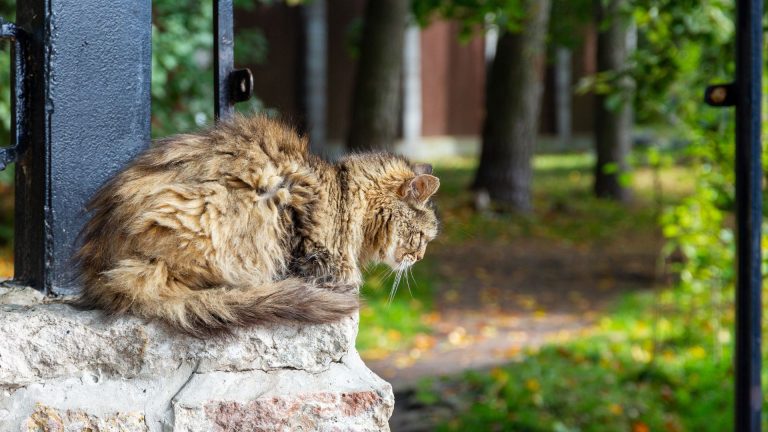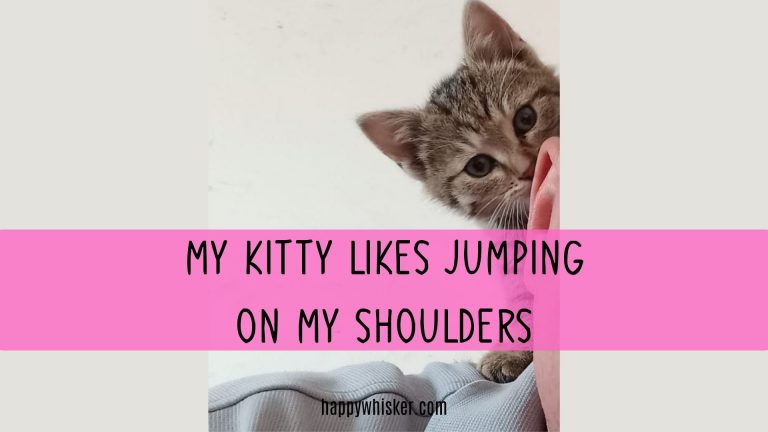Why Does My Cat Attack Me And No One Else? 7 Reasons & Fixes
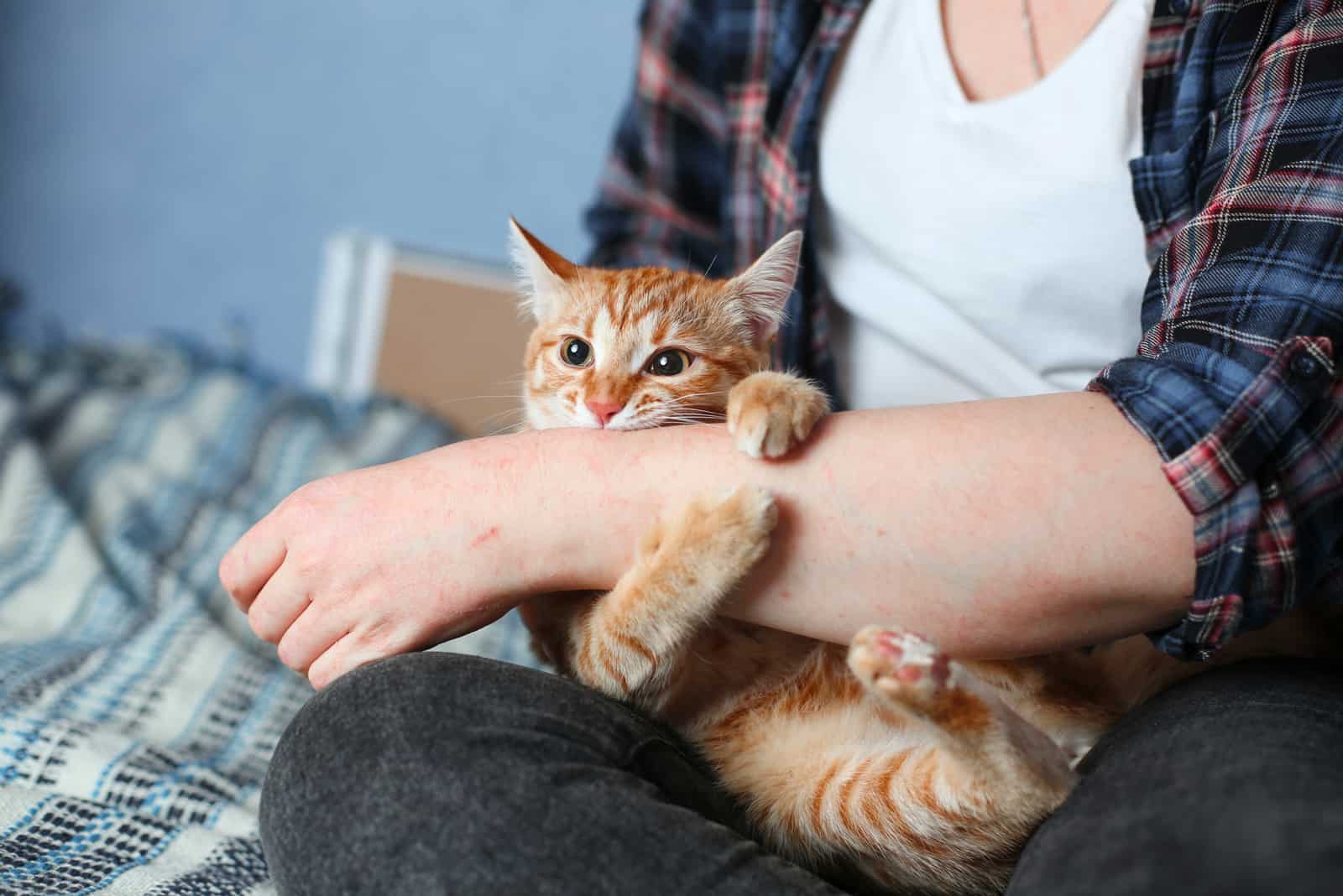
At times, your fuzzy fur ball is so friendly it seems to be made for cuddling. On other days, it can seem like a sneaky assailant, stalking your steps waiting to pounce.
However, we can all agree we feel terrible when our feline friends only seem to be aggressive toward us, and no one else.
If you have this problem, and you’re asking yourself “Why does my cat attack me and no one else?” then stay tuned.
I’ll give you 7 possible reasons why this may be happening, and present you with tips that might help you remedy the situation.
Why Does My Cat Attack Me And No One Else – 7 Possible Reasons
As a pet owner, there’s nothing worse than having your pet friend turn against you. You’ve just come home from work, and your cat is waiting at the door to pounce on you.
Suddenly, you have cat scratches on your face and neck, and you didn’t even do anything (or so you think)!
This aggressive behavior can really make you feel uncomfortable in your home, especially if you have an indoor cat.
Noticing and understanding the causes of this behavior is of utmost importance. More often than not, your cat’s behavior is caused directly by your actions.
Of course, you should always consult a vet to get their opinion on the situation.
That being said, read on to learn the most common reasons behind your cat’s aggression, and what you can do to prevent it.
1. Territorial Aggression
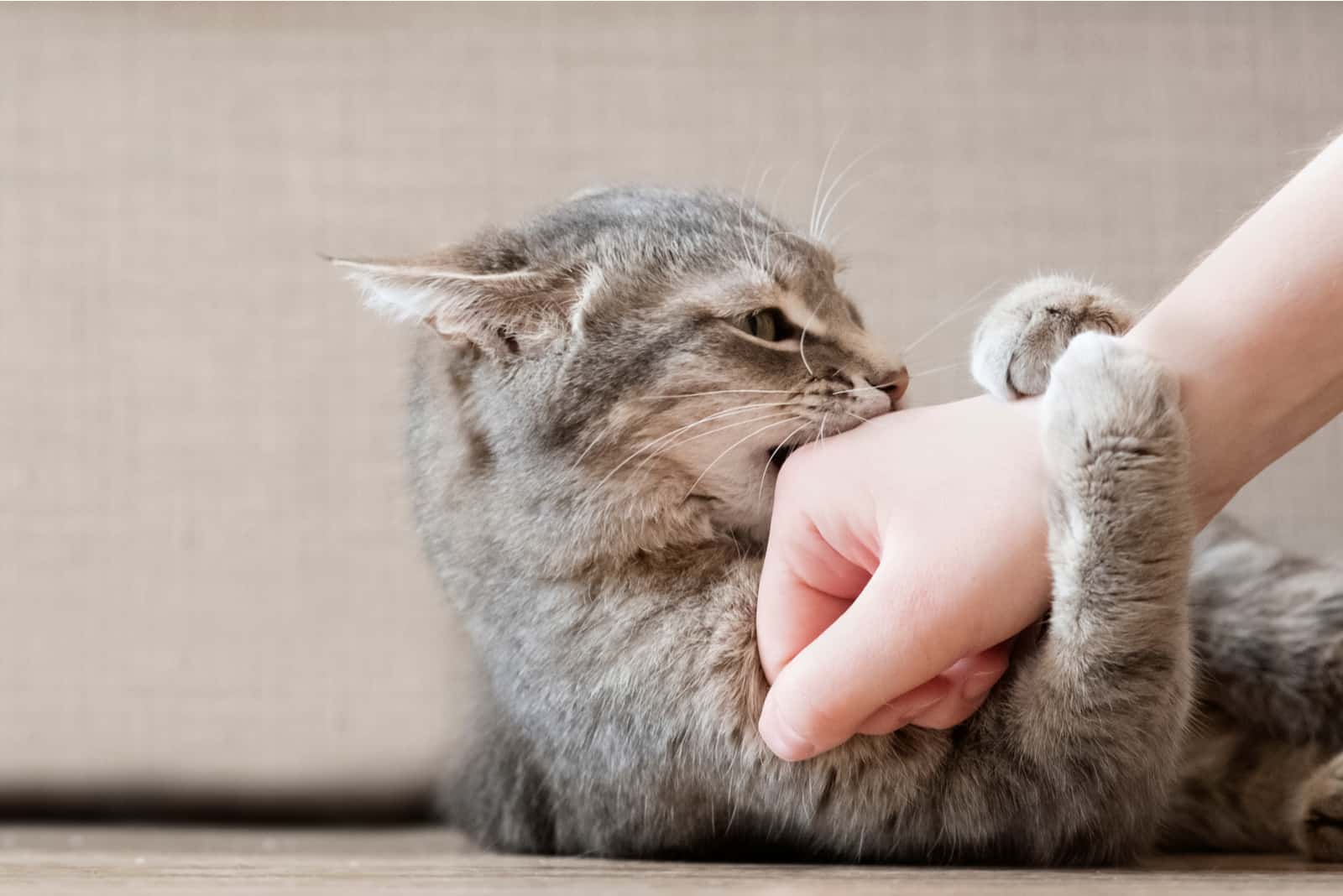
Like many animals, cats are naturally territorial animals. Long-time pet parents know how hard it is to manage several territorial cats in one home.
Territorial aggression will happen if your cat senses someone or something infringing on its territory. This can often happen if you decide to bring a new pet cat into your home.
Every owner that’s ever brought a new cat home to an adult cat with an already established territory, knows how hard it is to make these pet cats tolerate each other. This can often be solved by providing each cat with their own litter box and food bowl.
However, feline aggression isn’t always directed only at cats. Of course, the main threat to their territory will always be other cats, but that is not the only cause of territorial aggression.
Cats will often be territorially aggressive to other pets, dogs for example, and this aggression may extend to their owner.
If you’re asking yourself “why does my cat attack me and no one else”, territorial aggression may be the answer to your question.
It doesn’t help that both female and male cats often display territorial aggression, if they feel threatened. Females usually lay claim to a smaller territory, but they are still keen to defend it.
The best thing to do, to fix the situation, is to try and understand what territory your cat considers as their own.
Maybe your pet cat thinks that the whole house is their territory, and you are the intruder.
Whatever the case may be, make sure that you are not aggressive in turn, because it will only amplify the situation. If you discipline your aggressive pet cat, it will only get more aggressive.
The best thing to do is to get your cat some catnip, which will soothe and calm your cat, and most probably remedy the territorial aggression.
2. Stress
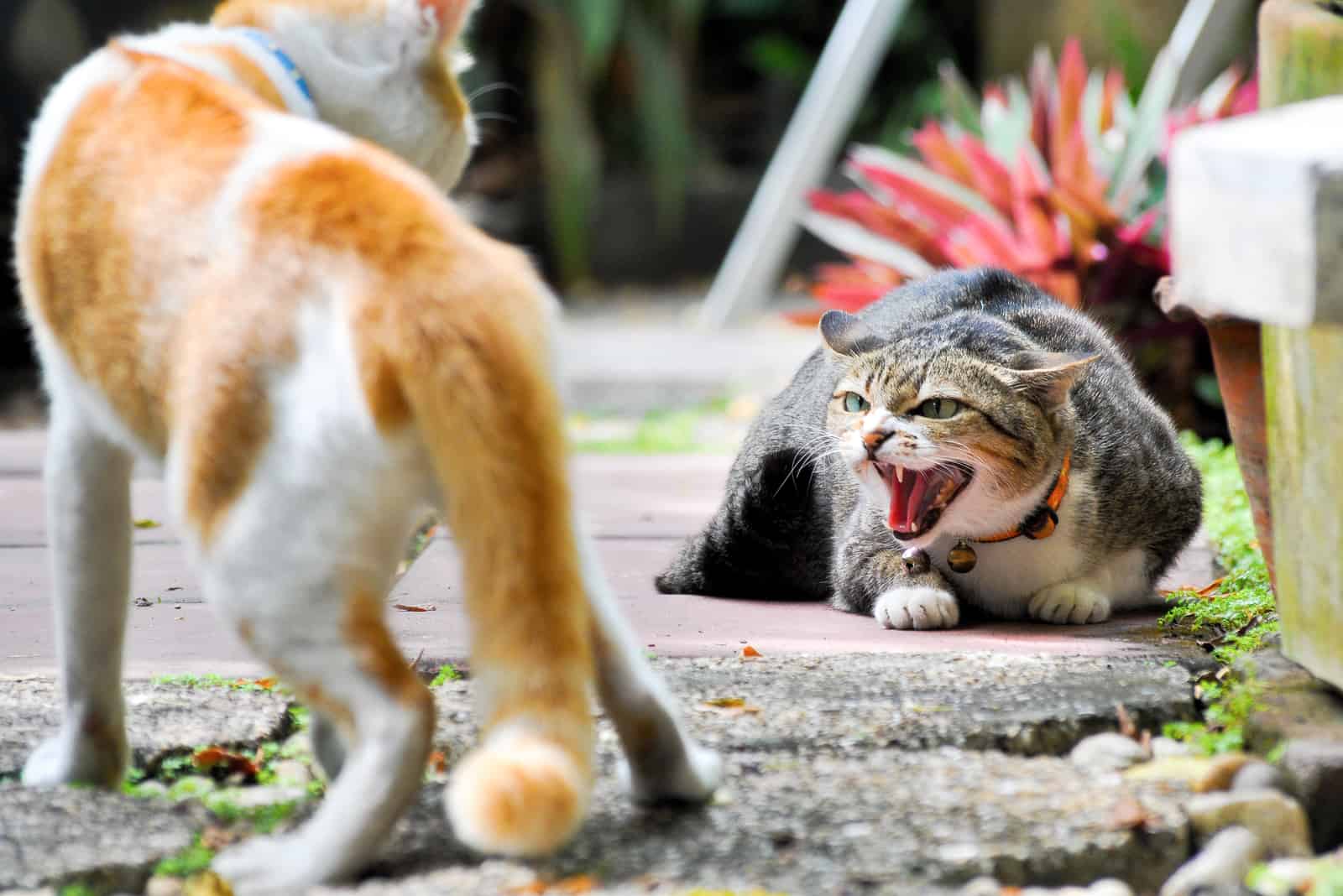
Even though you ensure your cat is feeling nice and comfortable, it can still experience stress.
Fear and anxiety can severely affect your cat’s mental health, and a stressed cat can often be a dangerous cat.
There are a lot of reasons why your cat might be experiencing fear or anxiety, and it is important to understand them.
A very common reason for fear is outdoor cats. If your cat is an outdoor cat itself, then its aggression can be explained.
Your cat may enter the house right after a scuffle with the neighbor’s tomcat. If you don’t know this, and you go straight for cuddles, you will often end up scratched or bitten. Your cat is still in attack mode and it lashes out at you.
Loud noises can also trigger a cat’s aggression, especially if they’re unexpected. Cats often connect loud noises with other predators, and they act defensively in such situations.
You may try to comfort your cat or “apologize” to it, but a stressed cat will rarely understand you. If your cat is scared, it will most probably run away. If their route of escape is blocked, they will often decide that attack is the best solution.
To fix this will only require time and understanding. You will have to be able to detect when your cats are stressed, in order to avoid them until they’re calm.
Warning signs of fear will often appear in hissing, growling, scratching, spitting, and swatting.
If your cat appears to be afraid of you, leave it alone, and offer some catnip and space for them to calm down.
3. Too Much Cuddling
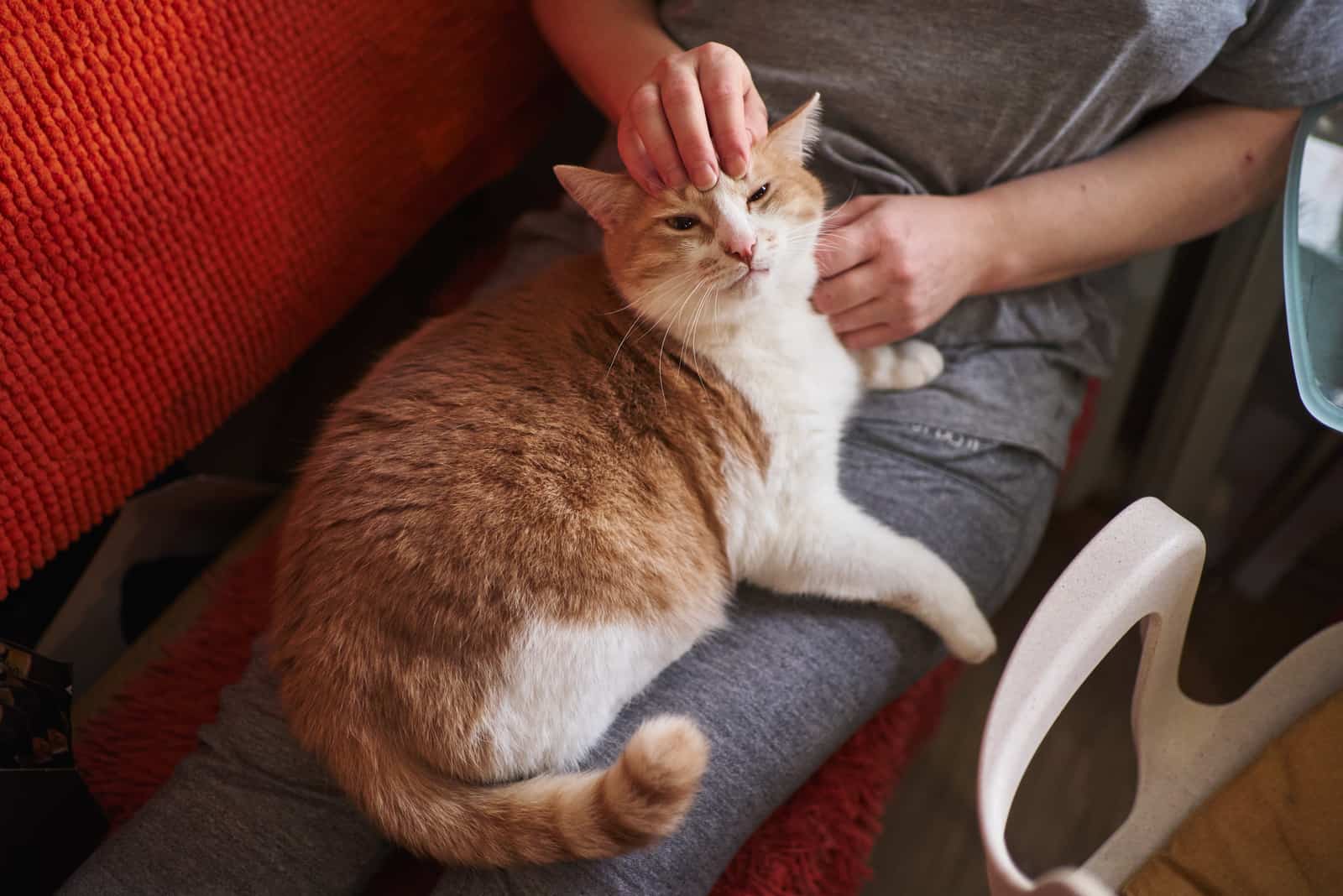
You may wonder “Why is my cat attacking me, when I give it so much love, care and cuddles?” Your question may be the answer!
Most cat owners want to cuddle with their pet cats, and there is nothing wrong with this. However, your cat may not be of the same opinion.
There are a lot of cats that just don’t like to be petted.
Some cats just want to be left alone, and will tolerate some petting because they don’t perceive you as a threat. But a lot of times, too much petting can result in scratches!
Maybe your cat likes to be petted, but you don’t know where. If you’re petting your cat on the belly, do not be surprised if it attacks you.
Touching the tail and whiskers can also be a sore spot for some cats. This phenomenon is called overstimulation.
Overstimulation happens when a cat decides that petting is no longer fun.
This can happen because you are petting it in the wrong spot, but it can also happen if your cuddling sessions are lasting too long.
To fix this, just try to give your cat some space, and focus on the head when petting your cat.
4. Redirected Aggression
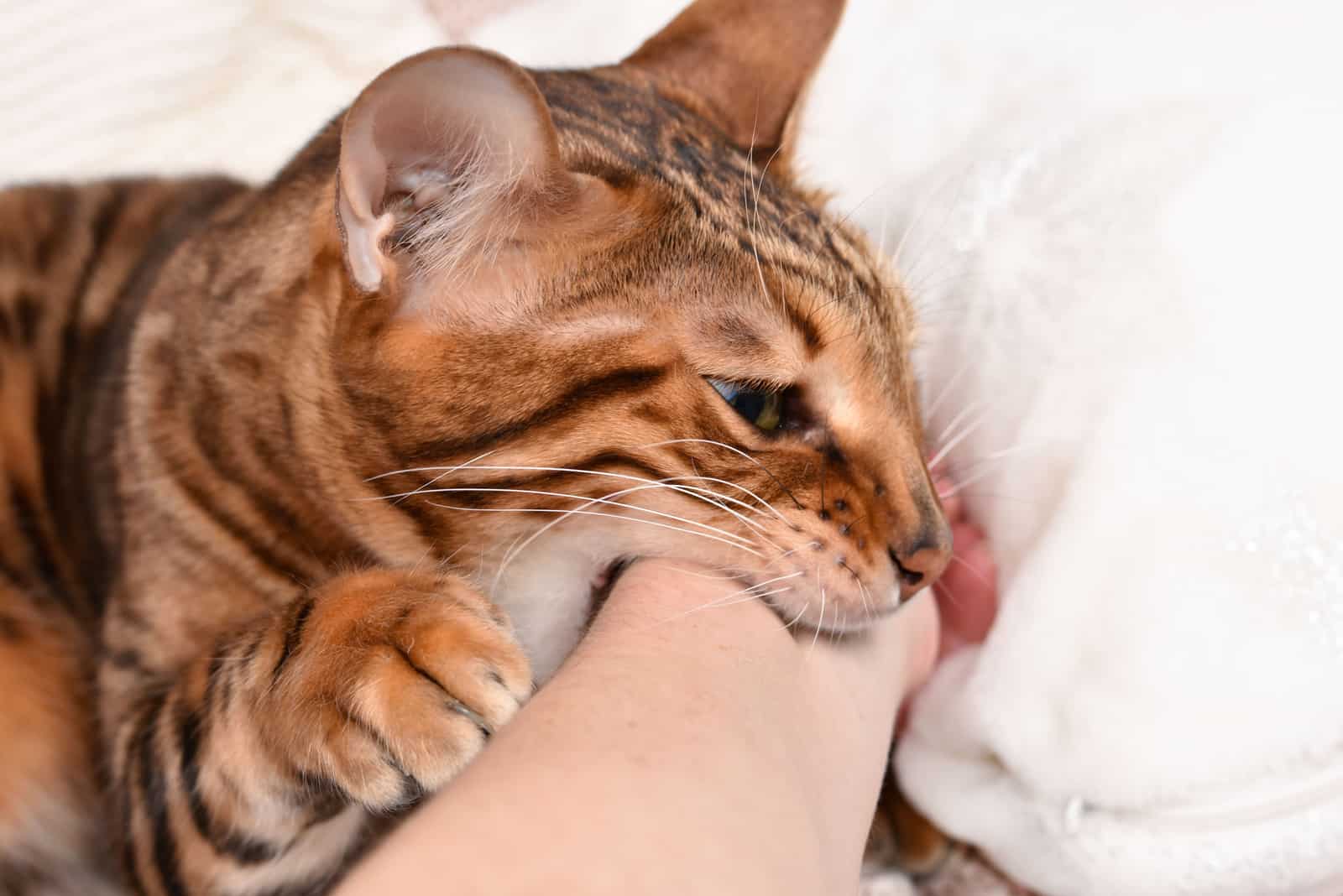
Redirected aggression is also very common with indoor cats. This is often the result of frustration that your cat can’t deal with.
A very common example of this is when your cat sees an outdoor cat through the window. It will get territorial, and will want to attack that cat, but it is not able to.
This may prompt it to attack YOU. Your cat is angry and feels threatened and it needs to blow out some steam, and you are the only thing present.
Another very common reason for redirected aggression is jealousy. If you have other pets, especially dogs and other cats, your cat can feel very possessive of you.
Cats often choose their favorite, and if they think that you are making some other cat your favorite, they will lash out at you to get you to understand. Of course, to you it just appears that your cat is being a jerk.
If your cat attacks you only when you’re in the vicinity of other pets, it’s probably your cat being jealous. This can also happen if you spend time with another cat who marks you with their scent (for example by rubbing their head on you).
For example, if one cat’s scratching post is near the couch, and some other cat attacks you on the couch, you may want to move the scratching post away from that spot.
Generally, this can be fixed by giving all your cats fair treatment.
5. Your Cat Wants Attention (Playtime)
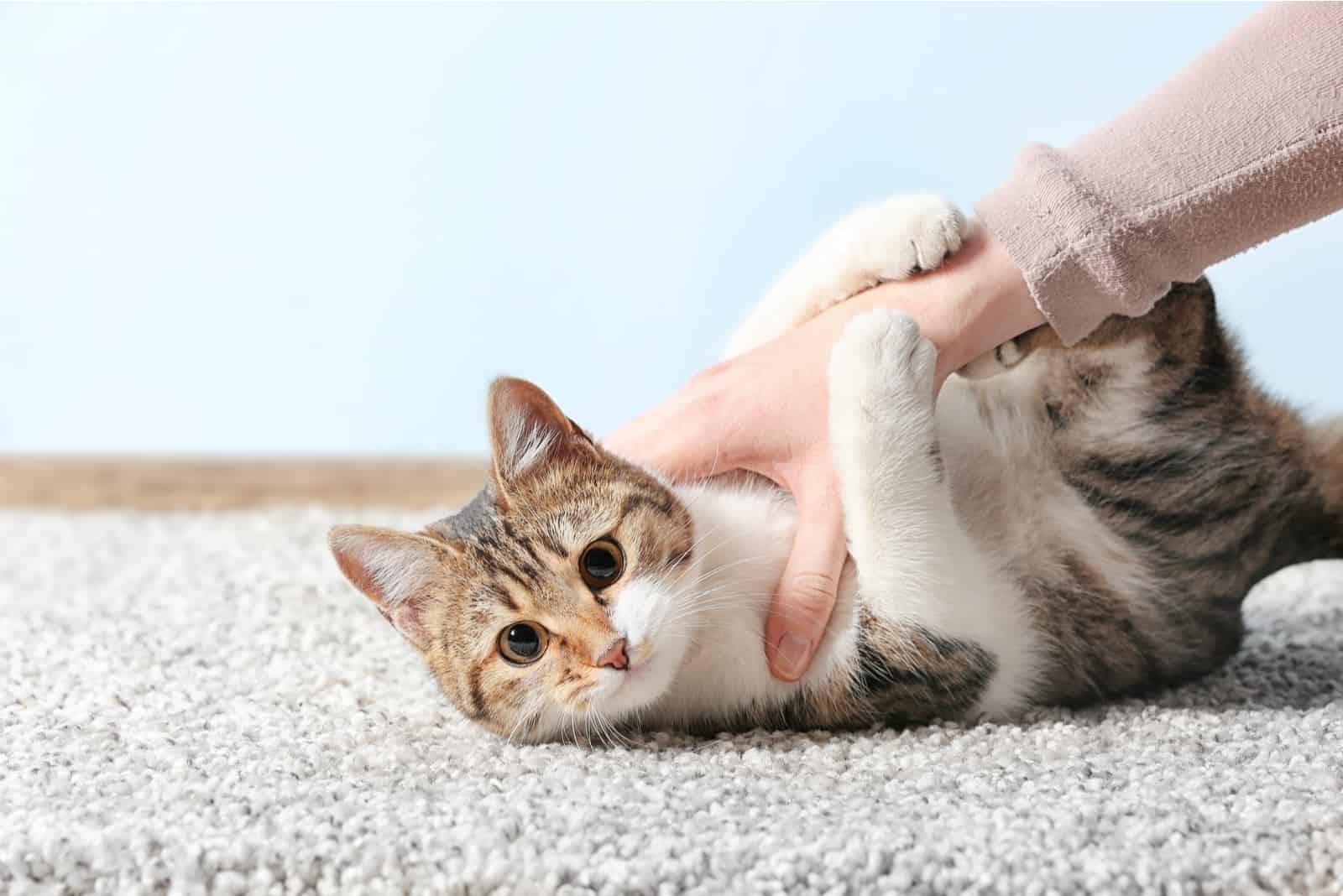
Playtime with your cat is a no brainer, but it may be more important than you think.
Cats are semi-wild animals, and their wild instincts are more present than in most other pet animals. Cats need regular play sessions in order to remain calm and happy in their life.
Feline hunting instincts are well-known, but not many people understand that those instincts are also very important for indoor cats.
Even though you may have bought your cat from a pet shop, it still has wild instincts, and this side of them has to be stimulated.
Regular play sessions are a must for any cat owner. If you have a cat, you will have to go on a hunt with it! Just kidding, you can do it in your house!
Your cat doesn’t know that it wants to hunt, it only knows that it’s bored. Scratching, clawing, biting, and pouncing are all natural behaviors that cats have engaged in for thousands of years.
Their brains demand this of them, and you can simulate this behavior through quality playtime.
Try to have daily playtimes with your pet cat. During playtime, don’t cuddle, use tools like ropes, balls, gloves, and similar things that your cat can target with its sharp weapons.
After 20 minutes or so of heavy playtime, your cat will not only be stimulated, but will be tired, and the attacks should soon cease.
It must also be mentioned that your cat’s aggression can be explained by understanding the concept of positive reinforcement of negative behavior. This can also be seen with meowing.
Your cat wants something, and it is adamant in meowing it out of you. Instead of ignoring this, you get annoyed by the meowing and give your cat what it wants. It now knows that it can always get what it wants if it’s persistent enough.
If you only play with your cat if it starts scratching you, it will notice that. If this is the case, your cat will always scratch you if it wants to play, since it knows that this method works to get your attention.
Try to fix this by playing with your cat before it starts attacking you.
If you don’t have the time to engage in playtime regularly, try to provide your cat with a lot of toys and perches, so they can simulate the hunt on their own and burn out any excessive energy.
6. Your Smell Bothers Your Cat
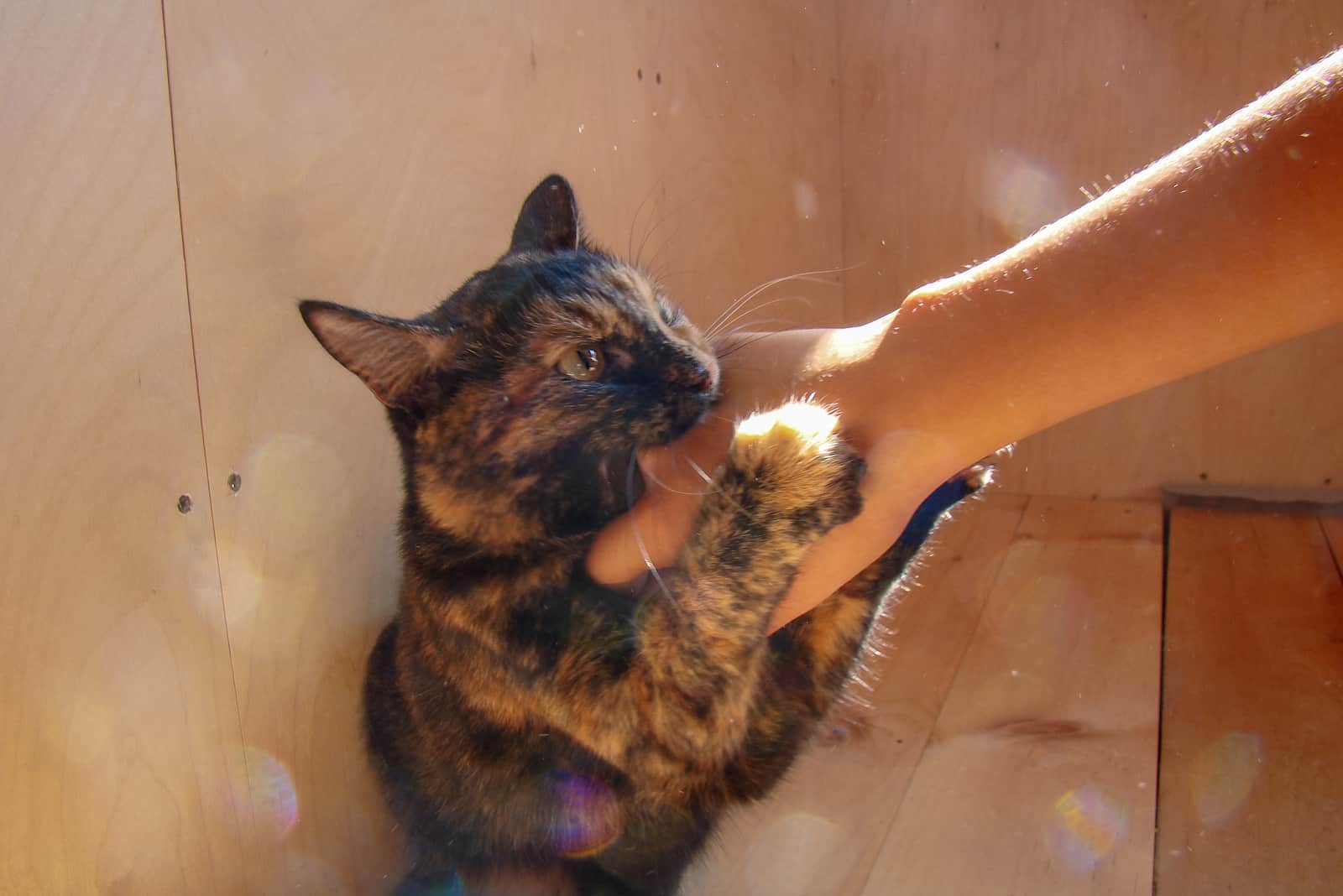
This is also a very common reason for cat aggression. Cats have a very amplified sense of smell, which helps them in hunting and in defending themselves.
More often than not, you will bring home some smells that you can’t even detect. Those smells may be a nuisance for your pet.
Even worse, your cat may connect those smells to a certain feeling of danger, which will make it more aggressive toward you.
Perfumes, certain building materials, smells of other cats, paint, etc., can often overload the senses of your cat, and make it aggressive toward you.
If you work at a job which involves some intensive smells, this might be the reason for your cat’s aggression toward you.
If you suspect that smells are the cause of your cat’s aggression, try removing your clothes and showering first thing when you come home. If smells really are the problem, this should fix it.
Suggested: 15 Tips & Tricks On How To Make A Cat Like You
7. Play Aggression
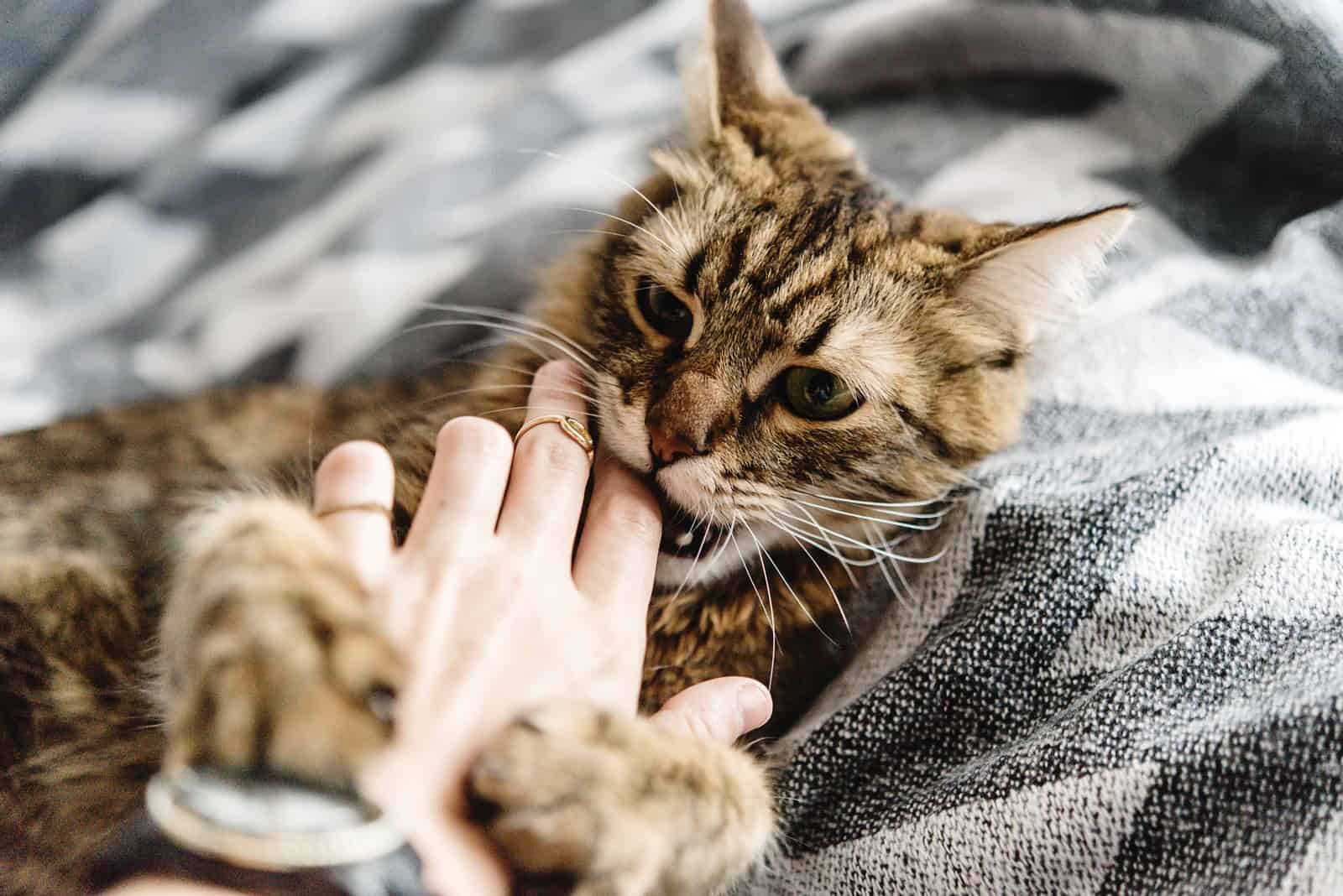
As mentioned before, cats are semi-wild animals. As such, their genetic code is strongly influenced by “violence”.
A lot of animals, especially at a younger age, engage in something called rough play. Rough play is when animals play with each other in the form of wrestling or fighting.
If you’ve ever had an adult cat that gave birth to kittens, you’ve probably already witnessed how young cats engage in rough play with each other.
If not in person, you’ve probably seen play aggression in a documentary about lion cubs. This is a perfectly normal behavior for an animal that will grow to be a fearsome predator.
If your cat does not have a companion, primarily another cat, they may want to engage in rough play with someone else.
If you are your cat’s only friend, consider getting it another.
Other cats will be perfectly accepting of play aggression, since they also require it, and you will be safe from attacks.
Signs Of Aggression

Every cat owner needs to have a firm grasp on signs of aggression, since noticing them in time can often spare you a lot of pain.
Reading a cat’s body language is very important and can be very easy to learn.
You can also consult a behaviorist to get a professional opinion if this continues to be a problem.
The most common signs of aggression are:
– Posture is confronting, instead of leaning, slinking, or running away from you
– Stares at you fixedly and walks in a straight line towards you
– Pupils dilated
– Piloerection (erection of cats fur and whiskers)
– Tail swiping back and forth
– Hissing, swatting, spitting, growling at you
– Tail pointing down, instead of curving downwards
– Pointing ears upward
If you notice any of these signs in your cat, avoid it. It cannot be reasoned with, and it’s best if you move out of its way until it’s calm.
Of course, you can always offer it some catnip, but mind your hands.
Conclusion
Why does my cat attack me and no one else? All in all, cats will be cats, and they may act in a way you deem strange and inexplicable. However, there is rarely an issue that can’t be explained or understood.
As a cat owner, you will have to learn a lot about feline nature in order to properly take care of your pet cat and avoid uncomfortable situations.
Also, you will have to understand that cats have certain instincts that they will naturally adhere to, so it is your best bet to adhere to those instincts. You will not be able to teach your cat not to be territorial, so it’s best if you accept it.
If none of these apply to your situation, and your cat’s aggression still seems to be a matter of mystery, we suggest you consult your vet to get a professional opinion.
That being said, we hope you learned something here and we wish you good luck!

